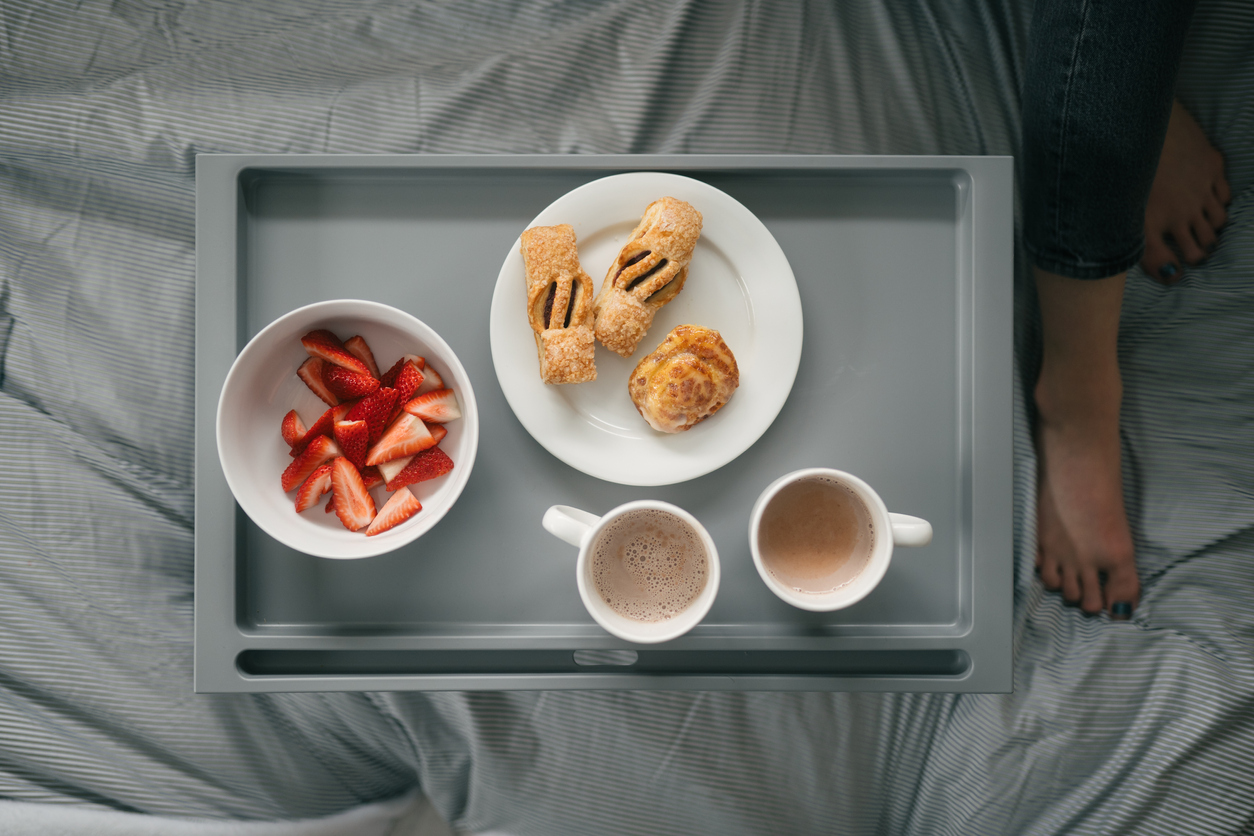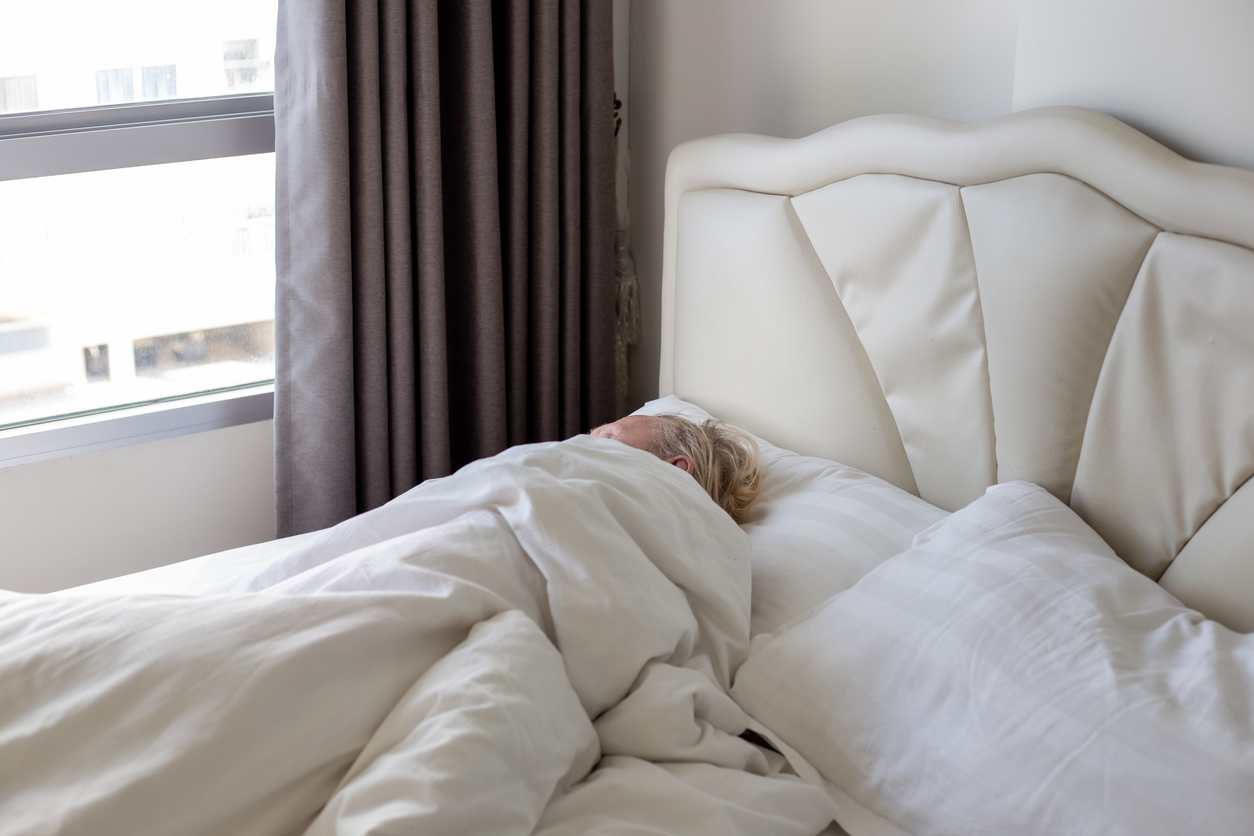What Foods Are Best to Eat Before Bed?
Social Links
- The Best Ingredients for Meals Before Sleep
- Savoury Meals
- Naturally Sweet Meals
- Foods to Avoid Before Bed
- When Should You Stop Eating Before Bed?
Most of us have our usual night-time routine for winding down before bed. For some, that might be a hot shower or bath, watching a film with a loved one or sitting up in bed with a book. Some of us do stretches, while others prefer to end the day tidying up or making plans for tomorrow. Either way, these activities form an important part of our routine and, if performed calmly and regularly, can help trigger responses in the brain that let it know it’s time for sleep.
For some of us, though, this routine may extend to reaching for a late-night snack. Occasionally, this is fine and can even help our body relax. Most of the time though, these ill-timed treats are more likely to disrupt our sleep, rather than enhance it.
So how can we tuck into a cheeky evening tidbit and still enjoy our precious eight hours slumber? Well, it all depends on exactly when, and what, we eat. As not all midnight snacks are created equally, we’ve put together this handy guide to what you should reach for, and what you should resist!
The Best Ingredients for Meals Before Sleep
When it comes to diet and sleep, there’s a very broad spectrum between food that helps you sleep and food that keeps you awake. Food that promotes sleep contains certain nutrients and properties that trigger sleep-inducing hormones. Some of these include:
Melatonin: this is the hormone that helps regulate our sleep cycle and is responsible for making sure we feel tired and awake at the right times. Foods that are high in melatonin include tart cherries, eggs, milk, nuts – particularly pistachios and almonds – and fatty fish like salmon, trout, tuna and mackerel.
Magnesium: this mineral is a natural anti-inflammatory and has been shown to reduce the cramps and twitchiness that often keep us awake at night. Magnesium helps regulate and produce melatonin levels in the body, and can also calm the mind. It’s found in some high-protein foods such as nuts, seeds, legumes and tofu, as well as bananas, whole grains, leafy greens, avocado and dark chocolate.
Tryptophan: this is an amino acid which, like magnesium, aids melatonin production and regulation of mood. Foods that contain high levels of tryptophan include milk, cheese, white meats and some fruits including bananas, apples and prunes.
So, if you need a quick snack before bed, rather than reaching for crisps, sweets or leftovers, why not try a handful of nuts, or perhaps a slice of bread or celery with nut butter, a banana, a couple of cherries, a few pieces of dark chocolate or a nice warm mug of malted milk.
Savoury Meals
Though it may be a few or even several hours before you actually go to bed, your main evening meal can still impact the quality of your sleep. Try to have meals that are high in melatonin and magnesium. Options include chicken or turkey with leafy vegetables, fish or tofu with salad or even eggs done your favourite way with some wholegrain toast. After all, who said eggs could only be for breakfast?
For some, main meals like these that are high in protein will help keep you fuller for longer and prevent the need to reach for late-night snacks or from waking up in the night feeling hungry. Others who have smaller appetites may find that trying to sleep on a full stomach is actually counterproductive – in this case, it may be worth switching your meals around so you have your main, bigger meal at lunchtime. Then for a smaller evening meal, you could try a boiled egg, some leftover vegetables or salad, bread or toast with a nut-based spread or even oatmeal, which is high in melatonin.
Naturally Sweet Meals
Sugar is a natural stimulant and is known to keep people awake when they’d rather be asleep. That said, who can resist a little sweet treat after a plateful of savoury? The key is to have only a small amount and try to choose something that incorporates natural sugars as well as other healthy food groups.
A good choice would be a fruit salad that’s high in magnesium and melatonin, or a luxurious drink made by dropping a couple of pieces of dark chocolate into some warm milk. If your sweet tooth isn’t so easily satisfied, look for foods which are easy to digest, such as cottage cheese or plain yoghurt with some honey. Try to resist heavy puddings with lots of cream or ice cream – though if you can’t, keep your portions small or have them after lunch, rather than filling up on sugar before bedtime.
Foods to Avoid Before Bed
Just as some foods will help promote sleep, others will do their best to ruin it. Caffeine, which is found in tea, coffee, chocolate and energy drinks, is a natural stimulant and can keep your mind awake even when your body feels tired. Similarly, alcohol can interfere with your natural sleep patterns and is therefore best avoided before bed.
Any food that causes indigestion, and therefore increases the likelihood of waking up due to discomfort, should be avoided, though that will, of course, be different for everyone. Common culprits include gluten, lactose or dairy foods, spice, acidic foods such as tomatoes or citrus fruits and anything that’s highly processed like salamis and meat pastes. If you do find these foods hard to resist, try to enjoy them earlier in the day.
If, no matter how much you adjust your diet, you continue to experience discomfort or reflux, do consider investing in an adjustable bed. Sleeping with your head slightly raised can make a hugely positive difference to quality of sleep.
When Should You Stop Eating Before Bed?
This is the kind of issue that is different for everyone, but experts suggest you should eat your main evening meal at least two to four hours before you go to bed. This is partly because it reduces the chances of indigestion keeping you awake, and the need for trips to the bathroom during the night.
On the other hand, if you’re one of the almost five million people in the UK with diabetes, eating before bed may be necessary to stabilise your blood sugar levels – though that’s something you should discuss with your GP. For the rest of us, eating a healthy, balanced diet and maintaining a good body weight can have a much greater impact on our sleep than the times we eat. So if you need to nibble, reach for a healthy snack, and try to exercise every day.
The Bottom Line
We all have certain foods we love – though sadly, not all those foods love us back. Some interfere with our sleep by disrupting our sleep hormone levels, while others just keep us up all night with indigestion. The best way to navigate the situation is to choose our snacks and snack times carefully – fortunately, there are plenty of good options.
The other way to achieve a good night’s sleep is to ensure what we’re sleeping on is as comfortable as possible. An adjustable bed and an adjustable mattress from the Mobility Furniture Company means you can always find your most comfortable position, especially if you succumb to the temptations of a not-so-healthy midnight snack. At least if you have an adjustable bed it is easy to sit up and enjoy it – ssshhh – we promise not to judge!
*This website contains general medical information. The medical information is not advice and should not be treated as such. Read our full Medical Disclaimer here.



